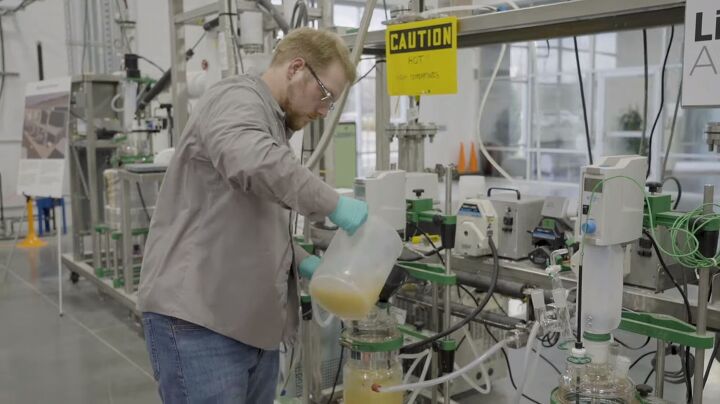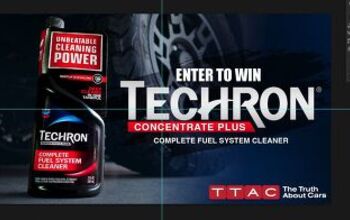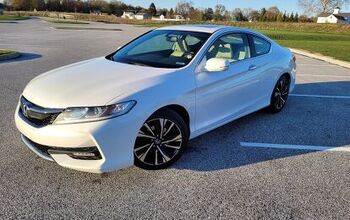Report: Lithium Americas Breaks Ground in Nevada Mining Operation

Lithium Americas has broken ground on its Thacker Pass mining operations, potentially opening the door to what some are calling the largest lithium deposit in the entire world. However, it’s estimated to be another three years before refinement takes place and the materials can be adapted for use in battery powered products — including all-electric vehicles.
According to Automotive News, Lithium America is claiming it’s the “only fully permitted new lithium mining project” inside the United States “with a clear path to production.” This is the result of 20 years of exploratory drilling, materials analysis, and planning roads and facilities that will help make the mining processes feasible.
From Automotive News:
But the Thacker Pass project remains complex. It has received a conditional $2.3 billion federal development loan commitment and will have to raise money to finalize and ultimately access the loan.
At other sites, lithium is contained in hard rock or dissolved in brine deposits, which are pools of salty groundwater. The lithium deposits at this site are embedded in clay, requiring a new combination of technologies to extract at scale.
And the project is not without controversy. Some Native American tribes say the mine infringes on the site of an 1865 massacre. The Reno-Sparks Indian Colony and the Summit Lake Paiute Tribe filed lawsuits — which were ultimately dismissed — saying they were not consulted as required and that the Thacker Pass project desecrates a site of spiritual and historical significance.
The company has worked to appease concerns with concessions, including a community benefits agreement.
Lithium Americas' path is a stark reminder that battery materials mining in the U.S. is not easy and that producing the components for tailpipe emissions-free EVs still has social and environmental costs.
Even without the Biden administration’s corporate incentives to pivot the automotive industry toward electric vehicles, lithium mining is viewed as a broadly lucrative endeavor. Unless battery chemistry changes dramatically within the next decade, lithium should remain an extremely valuable commodity — and one that has been overwhelmingly dominated by Australia, China, and a handful of South American countries.
Thacker Pass was among several projects subjected to an expedited environmental review process during the pandemic. The assumption was that the United States would need lithium if it were to become a globally relevant battery producer and that it was already behind its primary economic rival. The fact that the Biden administration has been incentivizing anything pertaining to EV production was another item that presumably came into play, as was the fact that regulatory assessments probably would have been slow during COVID-19. The fact that lithium mines have taken criticism for polluting groundwater may have also been a contributing issue. Pushing the program through as quickly as possible may have avoided some scrutiny that would have ultimately crippled progress.
Automotive News noted that several environmental groups filed lawsuits alleging the streamlined process did not consider environmental impacts. Tribal groups did the same, with some arguing that the mines represented a human rights violation. However, those entities ultimately lost their legal battles and only managed to stall the project.
Tim Crowley, vice president of government affairs and community relations at Lithium Americas, said the "thoroughness of the process was upheld through judicial review by the Federal District and Circuit Courts."
But the resulting litigation has still been costing the company millions of dollars. Some investors are worried about cash burn. Lithium Americas went through $193.7MM just on Thacker Pass last year and is in a position where it’ll presumably need to raise money to continue on. This isn’t terribly surprising, considering the company knows it’s still years away from producing anything of value. But it will still need to exist in the interim period to reach a point where mining can begin in earnest.
At the time of this writing, Lithium Americas possesses a market capitalization of $760 million (USD). That comes after a noteworthy decline in the last couple of days when it was previously valued closer to $980 million. It also spent $228 million last year, which was nearly one quarter of the company's market value before its valuation fell. Fortunately, things seem to have stabilized since then and investors seem to be waiting to see what happens next after what looks to have been an intentional short.
Moving forward, the Department of Energy plans on offering the business a loan that should cover a majority of its first phase of construction. But the conditions require Lithium Americas to exhaust all other forms of debt and equity for the remaining costs. General Motors is also tied up with the company via a $650 million equity investment. However, the assumption is that the mining firm will still need to source a couple hundred million dollars via a 2024 funding round.
Regardless, the business has meaningful support and is allegedly onto something that could fundamentally change the American manufacturing base and bring a significant number of jobs to the community. But its likewise loaded up with environmental, sustainability governance and safety (ESG-S) goals that feel empty considering the level of push back it has seen from some native and environmental groups. ESG is frequently prevalent among companies trying to game the system since scoring is often determined by major financial institutions and investment firms hoping to drive policy. But it's often meaningless when put into practice and we've seen some of the world's biggest polluters with the worst human-rights track records still receiving desirable ESG ratings, not that the trend necessarily applies to Lithium Americas.
At a minimum, it seems wise to watch the company closely and take any overwhelmingly positive or negative reports with a touch of skepticism. Even under the most ideal scenario, it’s going to be a few years before Thacker Pass is up and running and it’s going to take sustained funding to get there.
[Image: Lithium Americas]
Become a TTAC insider. Get the latest news, features, TTAC takes, and everything else that gets to the truth about cars first by subscribing to our newsletter.

A staunch consumer advocate tracking industry trends and regulation. Before joining TTAC, Matt spent a decade working for marketing and research firms based in NYC. Clients included several of the world’s largest automakers, global tire brands, and aftermarket part suppliers. Dissatisfied with the corporate world and resentful of having to wear suits everyday, he pivoted to writing about cars. Since then, that man has become an ardent supporter of the right-to-repair movement, been interviewed on the auto industry by national radio broadcasts, driven more rental cars than anyone ever should, participated in amateur rallying events, and received the requisite minimum training as sanctioned by the SCCA. Handy with a wrench, Matt grew up surrounded by Detroit auto workers and managed to get a pizza delivery job before he was legally eligible. He later found himself driving box trucks through Manhattan, guaranteeing future sympathy for actual truckers. He continues to conduct research pertaining to the automotive sector as an independent contractor and has since moved back to his native Michigan, closer to where the cars are born. A contrarian, Matt claims to prefer understeer — stating that front and all-wheel drive vehicles cater best to his driving style.
More by Matt Posky
Latest Car Reviews
Read moreLatest Product Reviews
Read moreRecent Comments
- Offbeat Oddity I would have to test them out, but the Corolla might actually have a slight edge. I'd prefer the 2.0 in both cars, but to get one in a Civic with a decent amount of equipment, I'd be stuck with the Sport where the fuel economy suffers vs. the Corolla. If the Civic EX had a 2.0, it would be a much tougher decision.
- User get rid of the four cylinders, technology is so advanced that a four litre V8 is possible.. and plausible.. cadillac had a serious problem detuning v8s in the past, now theyre over-revving the fours and it sounds horrible.. get rid of the bosses and put the engineers in the front seat..
- BOF Not difficult: full-size body-on-frame sedan, V8, RWD, floaty land yachts. Unabashed comfort and presence. Big FWD Eldo too. While I’m at it, fix Buick much the same way just a little less ostentatious and include a large wagon w/3rd row.
- Jeff I noticed the last few new vehicles I have bought a 2022 Maverick and 2013 CRV had very little new vehicle smell. My 2008 Isuzu I-370 the smell lasted for years but it never really bothered me. My first car a 73 Chevelle and been a smoker's car after a couple of months I managed to get rid of the smell by cleaning the inside thoroughly, putting an air freshener in it, and rolling the windows down on a hot day parking it in the sun. The cigarette smell disappeared completely never to come back. Also you can use an ozone machine and it will get rid of most odors.
- Lou_BC Synthetic oil for my diesel is expensive. It calls for Dexos2. I usually keep an eye out for sales and stock up. I can get 2 - 3 oil and filter changes done by my son for what the Chevy dealer charges for one oil change.


































Comments
Join the conversation
Got some lithium right here in the Carolinas that will be tapped soon. Stay tuned.
What military applications does the element Lithium possess?